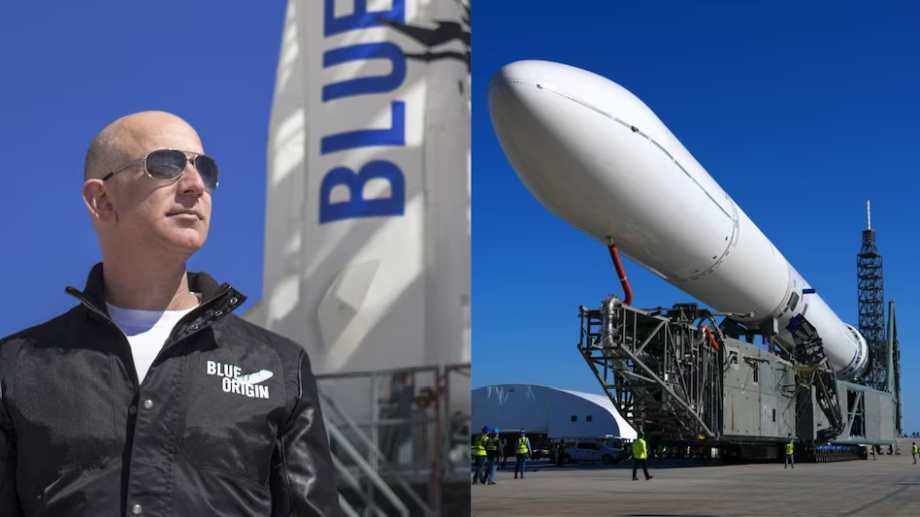Jeff Bezos’ Blue Origin plans to lay off 10% of workforce as SpaceX dominates space race

Just a month after Blue Origin successfully launched its long-delayed Glenn rocket into orbit, the Jeff Bezos-backed space company is reportedly preparing for its first round of layoffs. The move raises questions about its ability to compete with SpaceX, which continues to dominate the commercial space industry.
According to an exclusive report from Bloomberg, Blue Origin is cutting around 10% of its workforce as part of the effort to reduce costs and focus resources after years of development.
The report, based on an internal meeting, revealed that CEO Dave Limp confirmed the job cuts during an all-hands meeting on Thursday. Bloomberg first reported the workforce reduction.
“Jeff Bezos’ space company Blue Origin LLC is cutting about 10% of its workforce, a significant pullback aimed at slashing costs and refocusing resources after years of development work.”
Blue Origin Lays Off 1,400 Employees as SpaceX Maintains Lead in Commercial Space Race
Blue Origin has about 14,000 employees across its headquarters in Seattle and operational sites in Florida, Texas, and Alabama. A 10% cut means roughly 1,400 employees will be let go, with the focus on streamlining management.
“The rocket and engine maker laid out the personnel shakeup during an all-hands employee meeting with Chief Executive Officer Dave Limp Thursday morning, Bloomberg reported.
On January 16, the company’s New Glenn rocket launched from Cape Canaveral, sending the Blue Ring Pathfinder test satellite into orbit. However, the rocket’s reusable first-stage booster failed to land on a barge in the Atlantic—something SpaceX has mastered, routinely sending Starlink satellites into orbit with reusable boosters.
This launch marked an important milestone for Blue Origin as it pushes ahead in a competitive industry. But challenges remain, particularly in refining its booster recovery process. The company plans additional test flights before New Glenn is fully operational.
Last August, Bloomberg highlighted past setbacks, including a factory mishap that damaged a future New Glenn rocket. The company has also struggled with development delays and a corporate culture that some insiders describe as sluggish.
Bezos and Musk have long been in a battle over space dominance, with SpaceX pulling ahead. In the third quarter of 2024, SpaceX handled 86% of all upmass launches. Its Starlink network has also solidified its lead in the global satellite internet market.
Blue Origin, founded in 2000, started with suborbital flights using the New Shepard rocket, which proved reusable rocket technology after multiple test flights. The company gradually moved toward orbital missions, facing new technical hurdles along the way.
Despite delays and setbacks, New Glenn’s recent flight shows progress. The company is also working on lunar landers and is involved in NASA’s Artemis program, positioning itself as a challenger in the space industry.
Whether Blue Origin can close the gap with SpaceX remains to be seen, but it’s clear the competition isn’t slowing down.





